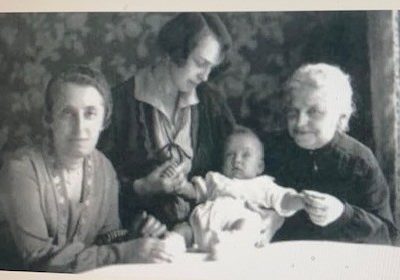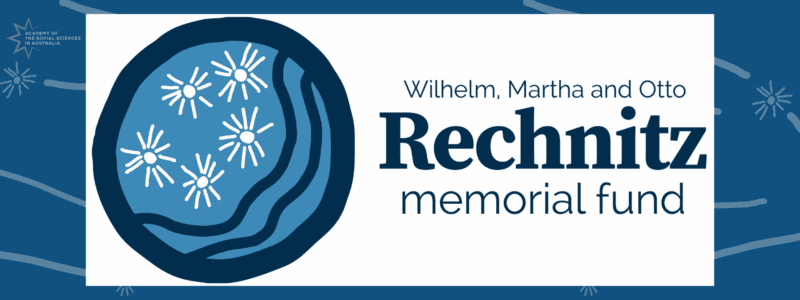The Wilhelm, Martha and Otto Rechnitz Memorial Fund
The Wilhelm, Martha, and Otto Rechnitz Memorial Fund (the Rechnitz Fund) was established in 2022 to support Aboriginal and Torres Strait Islander scholars in the social sciences, and to support knowledge and understanding of the society, languages and cultures of Australian Indigenous peoples. It does so through:
- Grants for early- and mid-career Aboriginal and Torres Strait Islander social science researchers (including Higher-Degree research students)
- Awards for excellence and research leadership in Indigenous society, culture and language, and
- Support for symposia, lectures and other related activities.
The Academy’s objective is to support this program for 10 years (2022-32), corresponding to the UN Decade of Indigenous Languages, by leveraging additional funding as the Fund is established.
The Rechnitz Fund is managed by the Academy of the Social Sciences in Australia (the Academy) with guidance of the Rechnitz Fund Steering Committee.
Read more about the 2024 grant recipients.
Rechnitz Grants for early- and mid-career researchers
Applications for Rechnitz Fund Grants are currently closed. Applications for the 2026 funding round will open in early 2026.
Eligibility criteria and guidelines as follows:
- Grants program for Aboriginal or Torres Strait Islander early- and mid-career researchers in any social science discipline
- Applicants must be employed by a university or research organisation with capacity to administer, acquit and report on grant expenditure.
- 2-3 grants to a maximum value of $20,000 (excl GST) per grant will be awarded each year. Funded research projects must be no more than 2 years in duration.
- Funding may cover travel/conference attendance, research staff, remuneration of time of Aboriginal or Torres Strait Islander knowledge holders, research tools (license or development), publication costs and other research costs. Lead research salary and research management costs are excluded.
- Grants are assessed by an expert panel including Aboriginal and Torres Strait Islander and non-Indigenous reviewers.
- Outcomes report is required at completion of grant (a presentation at an Academy event may also be requested; this will be facilitated by the Academy in partnership with the recipients’ organisation where applicable).
- Priority will be given to applicants from the Torres Strait Islands or of Torres Strait Islander heritage when these are received.
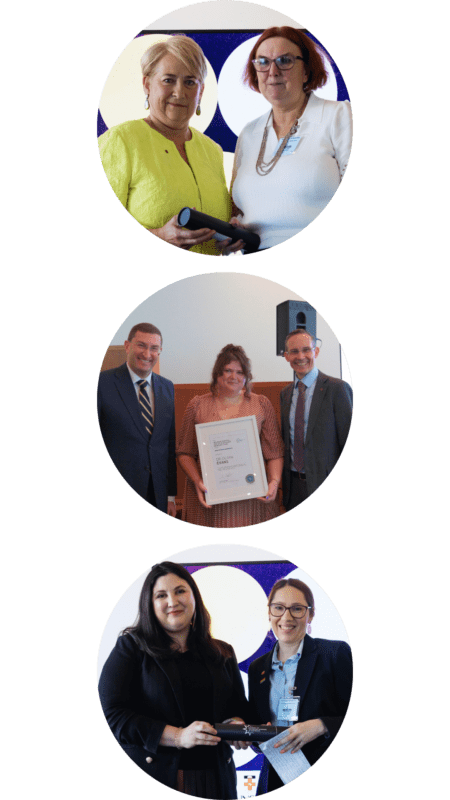
Rechnitz Award for Indigenous Society, Culture and Language
Nominations for the inaugural Rechnitz Award will open in early-mid 2025.
This award will be made annually recognising excellence in research leadership in advancing knowledge of any aspect of Indigenous society, culture and language. The Award will be structured as follows:
- Award nominations are to be made by Fellows of ASSA or AAH for either Indigenous or non-Indigenous scholars.
- Announced at Academy AGM and Symposium each year.
- Rechnitz Medal (Indigenous design) and Rechnitz Lecture.
- Academy-produced video on the work of the recipient.
About the Bequest
Dr Wilhelm Rechnitz was born October 24, 1899 in Cottbus, Germany. He studied Classics at the University of Marburg, reciveing his Doctorate in 1924 and in 1933 fled to England as a refugee from Nazi Germany. In September 1939 when World War 2 broke out Wilhelm and another 2,500 refugees from Hitler’s Germany were declared “Enemy Aliens”, interned in Britain, and in 1940 transported to Australia on the infamous HMT Dunera.
Wilhelm and the “Dunera Boys” were placed in internment camps in Hay, NSW and Tatura, Victoria. At the end of the war many of the “Dunera Boys“ went on to build distinguished careers in Australia, contributing significantly to the artistic, cultural, intellectual, and academic life of their new country.
Further information on the Dunera Boys and their contribution to Australian social, cultural and academic life can be found in an article by former Academy President Professor Leon Mann AO FASSA here.
Wilhelm Rechnitz lived and worked in the Torres Strait Islands over several periods from 1948-1972. A convert from Judaism to Christianity, he was ordained a priest in the Church of England. He moved between the Torres Strait Islands, where he translated Church services and scriptures into the indigenous languages. Wilhelm’s education in Greek and Latin classics and librarianship informed his great interest in the native languages of the Torres Strait Islands. He became absorbed in the study of the cultures and lifestyle of the Island peoples. He wrote numerous articles about Indigenous languages and, with a Kodak box camera, compiled a substantial photographic record of Island culture. This rich collection of Rechnitz’s material is held in the State Library of Queensland. Wilhelm Rechnitz retired to Brisbane in 1972, where he died in 1979.
Ralph O’Brien, a friend of Wilhelm Rechnitz since 1954 and as Trustee of his estate, has directed the sum of $300,000 from the Estate to the Academy of the Social Sciences in Australia to establish The Wilhelm, Martha, and Otto Rechnitz Memorial Fund to support Aboriginal and Torres Strait Islander scholars in the social sciences, and to support the study and promotion of the Aboriginal and Torres Strait Islander society, culture and languages. Professor Leon Mann AO FASSA, former President of the Academy has been instrumental in introducing Ralph to the Academy and helping to develop the concept and implementation of the Fund.
The Wilhelm, Martha, and Otto Rechnitz Memorial Fund commemorates Dr Wilhelm Rechnitz, who made a life in Australia. It also commemorates Wilhelm’s mother Martha and his father Otto Rechnitz. Martha Rechnitz’s property in Berlin was seized by the Nazis during the war and she was deported to the Minsk Ghetto in Belarus in November 1941 where she perished.
Otto Rechnitz’s business and properties in Berlin were also seized by the Nazis. He was interned in the Wedding Transit Work Camp north of Berlin in 1943. Following liberation, Otto died in Berlin several months later.
The funds for the Wilhelm, Martha, and Otto Rechnitz Memorial Fund are sourced from the restitution of property by the German Government to heirs and descendants of the victims of Nazi persecution.
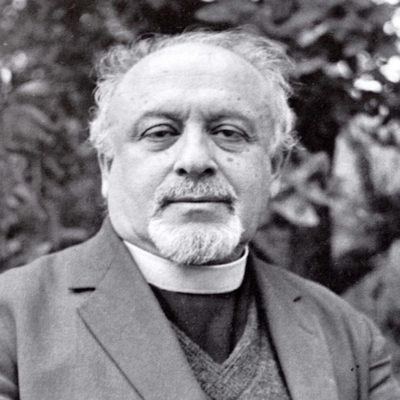
Dr Wilhelm Rechnitz
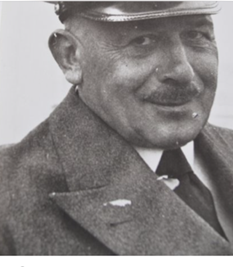
Otto Rechnitz
